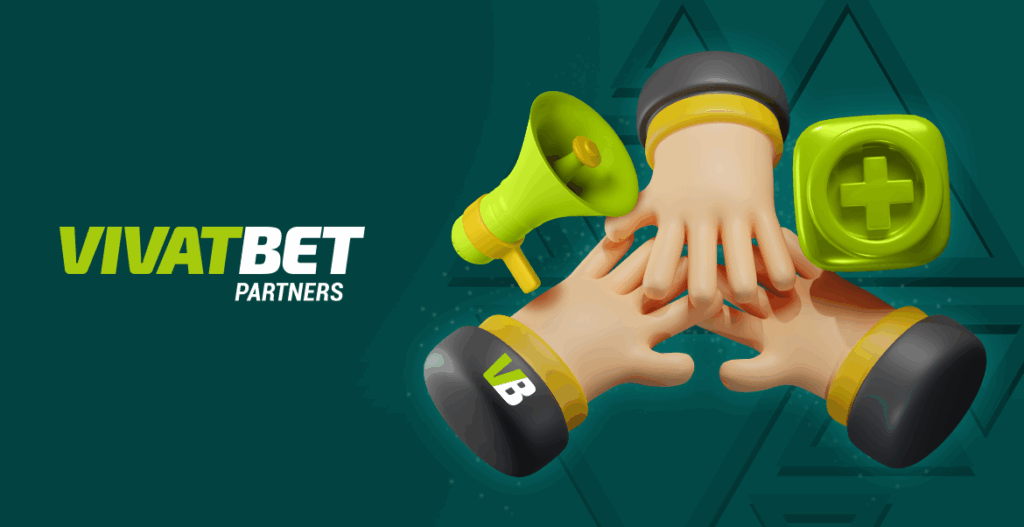What is affiliate marketing and how does it work
16.07.2025
What is affiliate marketing and how does it work
16.07.2025For many people looking to build an online income stream, one question comes up repeatedly: what is affiliate marketing and how does it work? The model sounds simple promote someone else’s product or service, send potential customers to that company, and earn a commission when a sale happens. This is exactly how affiliate marketing functions at its core.
The appeal is obvious. You don’t need to create your own product, manage customer service, or handle shipping. Instead, you act as a marketer, connecting interested audiences with relevant products or services offered by companies ready to pay for new customers.
But within this broad world of affiliate marketing, there’s a particularly attractive segment known as high-ticket affiliate marketing where affiliates promote higher-priced offers that generate significantly larger commissions per sale. For beginners who want to build serious income streams, learning how to do affiliate marketing at the high-ticket level can open the door to substantial long-term profits.
In this guide, we’ll explore exactly what is affiliate marketing and how it works, break down the specifics of high-ticket offers, and explain how even those with no previous experience can enter this space. Along the way, we’ll also examine how certain industries — like online gambling through programs such as VivatBet Affiliates offer excellent high-ticket opportunities for affiliates who take a smart, ethical, and focused approach.
How Affiliate Marketing Actually Works
At its foundation, affiliate marketing is a partnership between three parties: the company that sells a product or service, the affiliate who promotes it, and the customer who makes a purchase. The affiliate doesn’t handle sales directly. Instead, they generate content that attracts potential buyers and directs them to the company’s website using unique tracking links. When a sale occurs, the affiliate earns a commission.
This model works well because everyone involved benefits. The company gains new customers, the affiliate earns income for their marketing efforts, and the customer finds a product that meets their needs. For beginners wondering what is affiliate marketing, it’s helpful to understand that most affiliate programs rely heavily on content marketing to generate leads. Affiliates might build blogs, YouTube channels, email newsletters, or social media profiles where they review, explain, or recommend products in their chosen niche.
Affiliate networks or platforms often handle the technical side: tracking clicks, recording conversions, and processing commissions. This allows affiliates to focus on building their audience, while the company handles customer service, product fulfillment, and backend operations.
While basic affiliate promotions can involve low-cost products and small commissions, high-ticket affiliate marketing focuses on a different category entirely — products and services with higher price tags, more complex purchase decisions, and significantly larger payouts for each successful referral. That’s where the model becomes particularly attractive for serious affiliates who want to build scalable online businesses.
How High-Ticket Affiliate Marketing Differs from Standard Affiliate Programs
While traditional affiliate marketing often focuses on generating small commissions from mass-market products — things like books, low-cost gadgets, or basic subscriptions — high-ticket affiliate marketing takes a very different approach. Instead of aiming for hundreds or thousands of small transactions, high-ticket affiliates focus on promoting offers where a single sale can generate hundreds or even thousands of dollars in commission.
The key distinction lies not only in the price of the product but in the sales process itself. High-ticket products require a higher level of trust from buyers. These are not impulse purchases. They might involve expensive online courses, advanced software subscriptions, luxury services, or financial products. Because the purchase decision carries more weight, affiliates must take on the role of educator, consultant, and trusted advisor.
Unlike standard programs where brief reviews or social media posts may drive quick clicks, high-ticket promotions rely on in-depth content that guides prospects through a longer decision-making process. This often includes detailed blog posts, video walkthroughs, case studies, and even live webinars where affiliates answer questions and address concerns directly.
The payoff, however, can be dramatic. Instead of earning $10 per referral, high-ticket commissions might range from $500 to several thousand dollars per sale. This means a relatively small, highly targeted audience can generate far more income than a massive audience chasing low-ticket offers.
In industries like iGaming, for example, high-value partnerships exist where certain affiliate programs reward affiliates not simply for generating sign-ups, but for bringing in VIP players whose ongoing activity generates substantial revenue for the company. Programs like VivatBet Affiliates have structures that allow affiliates to benefit from the long-term value of these high-stakes customers, making them a natural fit for high-ticket strategies.
The Key Benefits of High-Ticket Affiliate Marketing for Beginners
For many newcomers exploring affiliate marketing, the idea of earning substantial income from just a few sales feels far more achievable than chasing thousands of micro-commissions. That’s precisely where high-ticket affiliate marketing becomes especially appealing. The most obvious advantage is the earning potential per sale. With high-ticket offers, a single conversion can yield hundreds or thousands of dollars. This allows beginners to focus on building smaller, highly targeted audiences rather than trying to drive massive traffic volumes. A carefully nurtured email list of just a few hundred engaged subscribers can produce meaningful income if they’re properly matched with premium offers.
Beyond revenue, high-ticket programs often provide stronger support for affiliates. Since the companies offering these products rely on fewer but higher-value sales, they invest more in helping affiliates succeed. This can include one-on-one training, better marketing materials, detailed analytics, and more flexible partnership arrangements.
For affiliate marketing beginners, high-ticket programs also encourage the development of long-term business skills. Because conversions don’t happen instantly, affiliates learn to build trust, create in-depth educational content, and engage their audience across multiple touchpoints — skills that serve them well across any niche they enter. Another often overlooked benefit is scalability. Once a high-ticket funnel is functioning effectively, affiliates can scale through targeted ads, additional content, or partnerships without needing to endlessly chase new small-ticket offers. Each piece of content continues to work over time, generating leads and nurturing prospects on autopilot.
Finally, many high-ticket niches, including sectors like online casinos, reward affiliates not only for initial sales but for ongoing customer activity. In programs such as VivatBet Affiliates, affiliates can benefit from recurring commissions tied to player lifetime value, creating a stable and growing income stream that compounds month after month. For beginners serious about building a real affiliate business, high-ticket offers represent one of the most efficient paths to substantial, sustainable online income.
How to Choose the Right Niche and Product in High-Ticket Affiliate Marketing
Selecting the right niche is one of the most critical decisions any affiliate can make, but in high-ticket affiliate marketing, the choice carries even more weight. Since you’re focusing on fewer, more valuable sales, aligning with the right products and audience is essential.
The best niches for high-ticket affiliates share a few common traits. First, they solve problems that are painful enough for customers to justify larger investments. Buyers are willing to spend thousands if they believe the solution delivers meaningful value. This often includes areas like business growth, personal development, finance, education, or luxury experiences.
Second, the target audience must have both purchasing power and intent. You need to attract individuals or businesses already seeking solutions, not those casually browsing. High-ticket buyers spend time researching before making decisions — which creates opportunities for affiliates who position themselves as trusted guides.
Common high-ticket categories include:
- Business software and automation tools.
- Premium coaching or consulting programs.
- Investment platforms and financial services.
- High-end e-learning courses.
- Luxury lifestyle or travel services.
- Specialized iGaming offers with VIP-level earning potential.
The iGaming space, for example, presents a unique high-ticket opportunity. Programs like VivatBet Affiliates allow partners to benefit not from a single large sale, but from referring high-value players who generate ongoing revenue for the company. This recurring, activity-based earning model blends the principles of high-ticket affiliate marketing with the unique dynamics of online gambling.
When evaluating specific affiliate programs, beginners should consider:
- The reputation and trustworthiness of the company.
- Commission structure and payout reliability.
Support, training, and marketing resources provided. - Long-term earning potential (recurring commissions vs. one-time payouts).
Above all, choose a niche you’re comfortable building content around. In high-ticket affiliate marketing, your ability to create helpful, insightful, and trustworthy material directly influences your success. Promoting offers you understand and genuinely believe in makes creating that content far easier — and far more persuasive to your future customers.
How to Drive Traffic in High-Ticket Affiliate Marketing
In high-ticket affiliate marketing, not all traffic is created equal. The focus shifts away from sheer volume toward attracting highly qualified leads — individuals who are actively searching for premium solutions and are ready to invest when presented with the right offer.
Unlike mass-market affiliate models, where casual browsing may lead to quick, low-cost purchases, high-ticket sales typically involve a longer decision-making process. This means affiliates must position themselves where serious buyers are already doing their research.
Content marketing and SEO remain some of the most effective traffic strategies for high-ticket offers. Creating detailed blog posts, in-depth product comparisons, success stories, and educational guides allows you to capture search intent from users who are evaluating options. These prospects are already motivated; your content helps build trust and answer the questions that stand between them and a purchase.
YouTube and video marketing are equally powerful, especially in high-ticket niches. Seeing a real person explain, demonstrate, and review a product builds a level of personal connection that text alone often can’t achieve. Long-form reviews, tutorials, and Q&A sessions attract highly engaged viewers who are willing to spend significant time learning before committing. Email marketing plays a crucial nurturing role. Rarely will someone discover your offer and convert immediately. Building an email list allows you to stay in front of prospects, provide additional value over time, and guide them toward purchasing when they’re ready.
For more advanced affiliates, paid advertising can also work — but it requires careful targeting, higher upfront budgets, and fully optimized funnels. Since high-ticket leads convert slower, patience and proper lead nurturing are key to seeing ROI.
In niches like iGaming, affiliates targeting VIP players for programs such as VivatBet Affiliates may also use private communities, Telegram groups, or specialized forums to reach smaller but highly engaged audiences. These platforms allow for more personal interaction, which is often crucial for high-stakes players evaluating where to play.
Ultimately, high-ticket traffic strategies succeed when they combine trust-building content with targeted outreach, focusing on real conversations rather than broad advertising blasts. Even a small flow of highly qualified leads can turn into a highly profitable affiliate business when approached correctly.
How to Create Content for High-Ticket Affiliate Marketing
In high ticket affiliate marketing, your content isn’t just promotional material — it’s the foundation of your entire sales process. Since buyers are investing significant amounts of money, they require more information, trust, and confidence before making a decision. Well-crafted content serves to educate, nurture, and guide them through that journey.
Unlike quick product roundups used for low-ticket offers, high-ticket affiliate marketing content needs to go deep. You’re not just answering “what is affiliate marketing and how does it work?” — you’re addressing specific concerns, explaining value, and building authority in your niche.
Effective content types include:
- In-depth product reviews that analyze features, pricing, pros, and cons honestly.
- Comparison articles that help buyers evaluate multiple products or services side-by-side.
- Case studies showing real-world results from others who’ve used the product successfully.
- Tutorials that teach your audience how to use the product effectively.
- Video content where you demonstrate the offer, explain processes, or interview experts.
The best high-ticket affiliate marketers position themselves as trusted advisors, not aggressive salespeople. Your goal is to become the go-to resource your audience relies on when considering expensive solutions.
For example, an affiliate working with VivatBet Affiliates might create comprehensive guides on how VIP programs function, explaining deposit requirements, payout speeds, and loyalty rewards. Instead of merely pushing the platform, you’re educating players on how they can maximize their experience and benefits — which naturally builds trust and drives conversions.
The most successful high-ticket affiliate marketing for beginners strategies focus on long-form, high-value content that answers every possible question a prospect might have before they commit. This approach leads to higher engagement, stronger trust, and ultimately, more high-ticket sales.
A Clear Path Into High Ticket Affiliate Marketing for Beginners
For those just starting and wondering what is affiliate marketing and how it works, the high-ticket model may seem intimidating at first glance. But for beginners who are willing to approach it with a strategic, long-term mindset, high ticket affiliate marketing offers one of the most scalable and rewarding paths in the affiliate marketing world.
Unlike chasing small commissions on low-cost items, this model allows you to focus on building a highly qualified audience, creating valuable content, and nurturing leads through longer but far more profitable buying cycles. Even with relatively small traffic numbers, a few high-ticket sales can generate significant income and create stable, recurring revenue streams. The skills you develop along the way, from content creation to email marketing, SEO, video production, and relationship-building position you for long-term success not just with one program, but across multiple industries. Programs like VivatBet Affiliates demonstrate how this model applies even within niches like iGaming, where attracting high-value players leads to ongoing, performance-based commissions tied to real customer activity over time. These partnerships reward affiliates who invest in building trust, transparency, and authority in their niche.Success in high ticket affiliate marketing for beginners doesn’t happen overnight. But for those who focus on ethical promotion, valuable content, and genuine problem-solving for their audience, this approach can evolve from a side project into a highly profitable, scalable business.
Recent posts

Twitter (X) Betting Communities – Growth Tactics for 2026
In 2026, betting communities on X operate under different rules than a few years ago. Speed, clarity, and interaction now outweigh raw posting volume. A…

How to Create Long-Form Betting Guides That Rank for Years – A 2026 Evergreen SEO Playbook
Betting websites compete in one of the most demanding search environments online. Users expect accuracy, structure, and clarity before they trust a page. Google applies…

E-E-A-T for Betting Websites – Practical Implementation Guide for Ranking and Trust in 2025
Betting SEO entered a different phase in 2025. Visibility now depends on how clearly pages prove reliability, accuracy, and accountability. Search systems assess content more…

